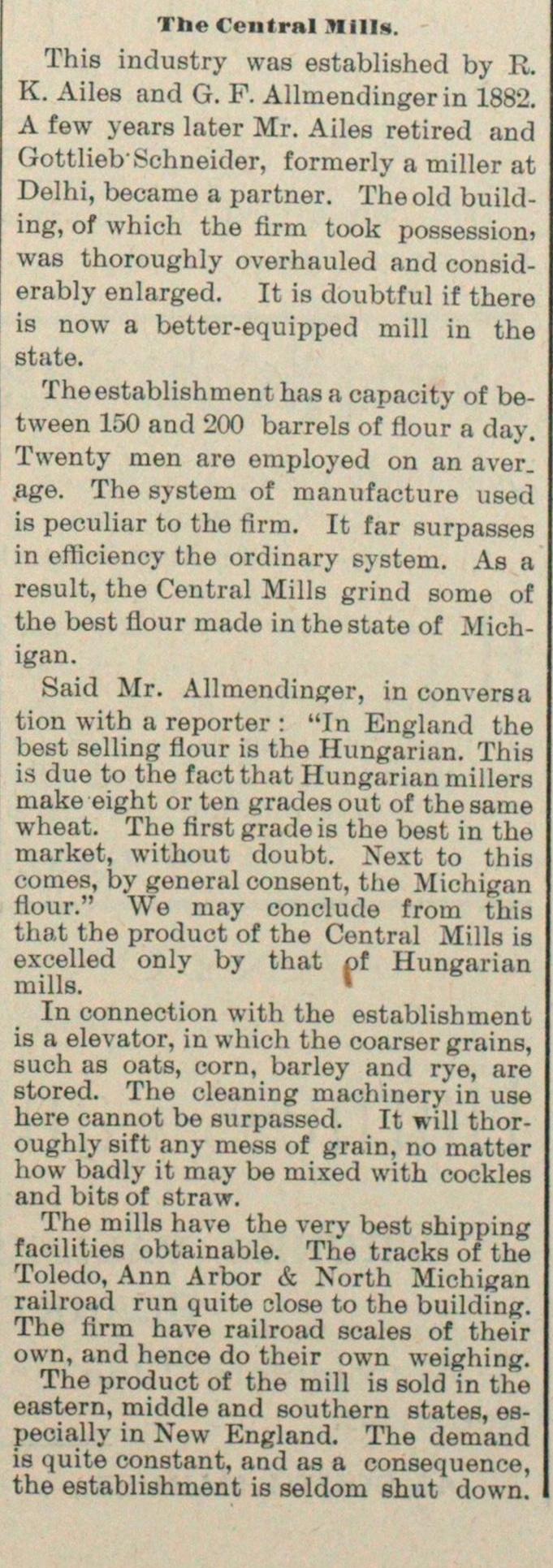The Central Mills

This industry was established by R. K. Ailes and G. F. Allmendinger in 1882. A few years later Mr. Aües retired and GottliebSchneider, formerly a miller at Delhi, became a partner. Theold building, of which the firm took possession) was thoroughly overhauled and considerably enlarged. It is doubtful if there is now a better-equipped mili in the state. The establishment has a capacity of between 150 and 200 barrels of flour a day. ïwenty men are etnployed on an aver. Lge. The system of manufacture used is peculiar to the firm. It far surpasses in efficiency the ordinary system. As a result, the Central Mills grind some of the best flour made in the state of Michigan. Said Mr. Allmendinger, in conversa tion witb a reporter : "In England the best selling fiour is the Hungarian. This is due to the factthat Hungarian millers make eight or ten grades out of the same wheat. The h'rst grade is the best in the market, without doubt. Xext to this comes, by general consent, the Michigan flour." We may conclude from this thiit the product of the Central Mills is excelled only by that of Hungarian milis. In connection with the establishment is a elevator, in which the coarser grains, suoh a8 oats, corn, barley and rye, are stored. The cleaning machinery in use here cannot be surpassed. It will thoroughly sift any mess of grain, no matter how badly it may be mixed with cockles and bits of straw. The milis have the very best shipping facilities obtainable. The tracks of the Toledo, Ann Arbor & Xorth Michigan railroad run quite alose to the building. The firm have railroad scales of their own, and henee do their own weighing. The product of the mili is sold in the eastern, middle and southern states, especially in New England. The demand is quite constant, and as a consequence, the establishment is seldom shut down.
Article
Subjects
Old News
Ann Arbor Register